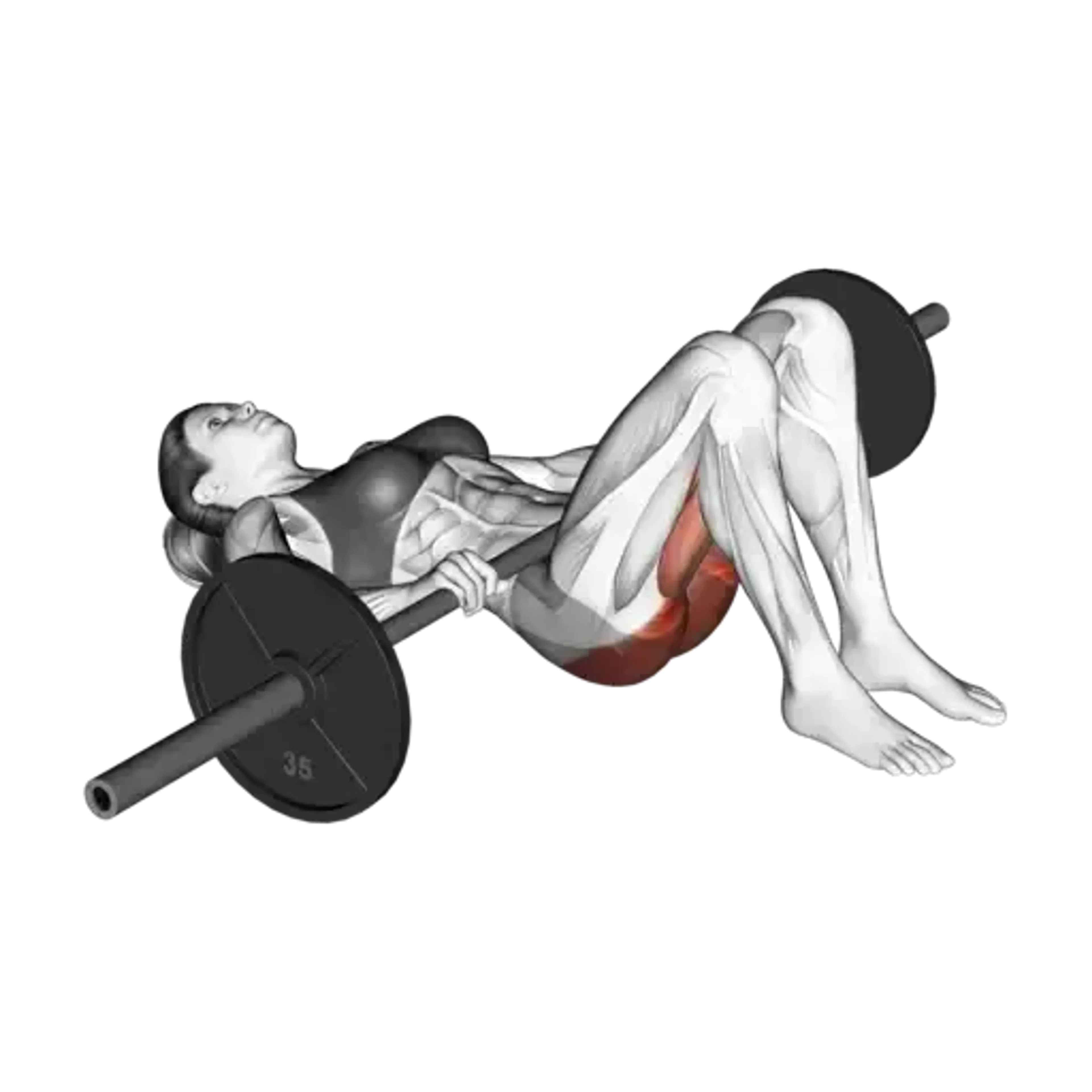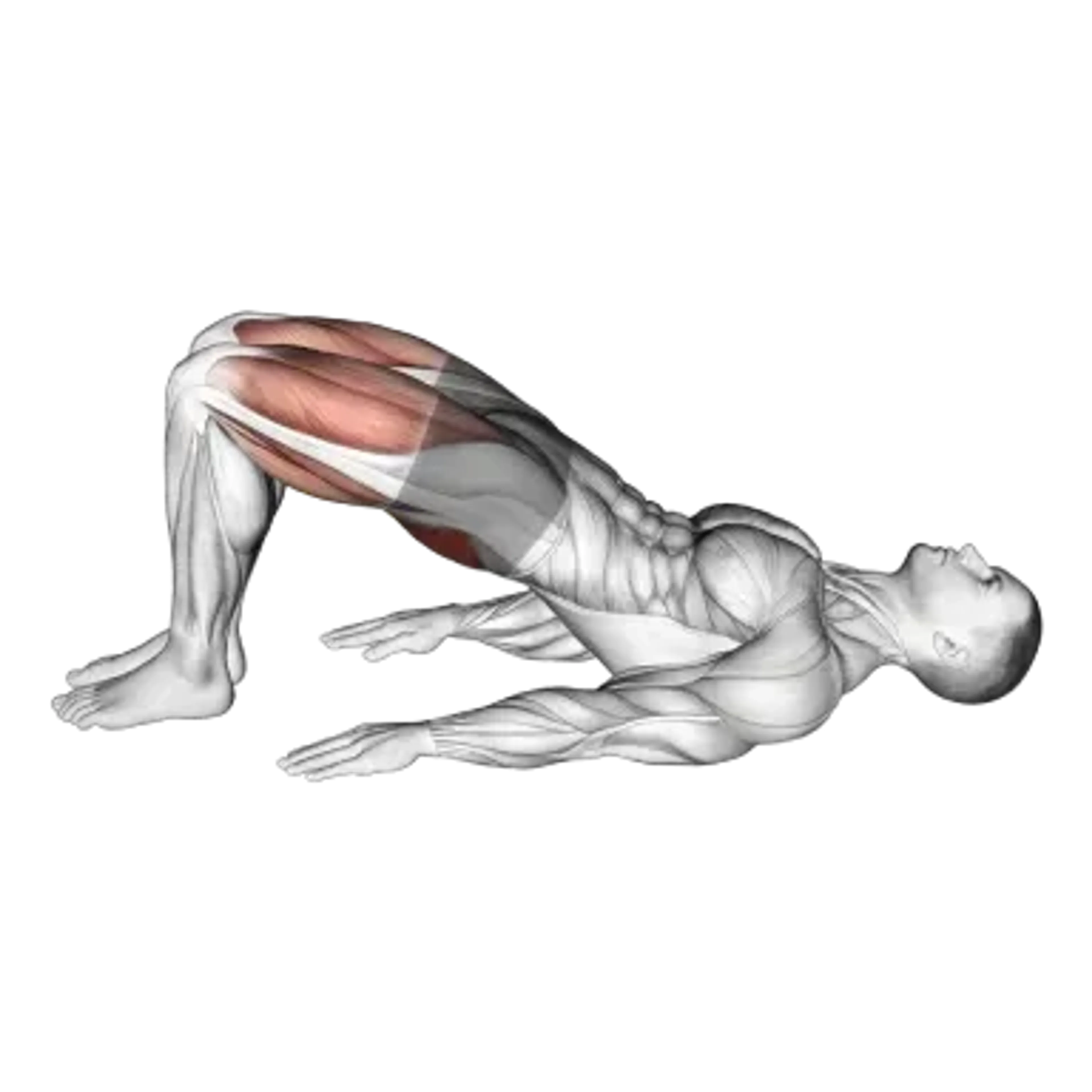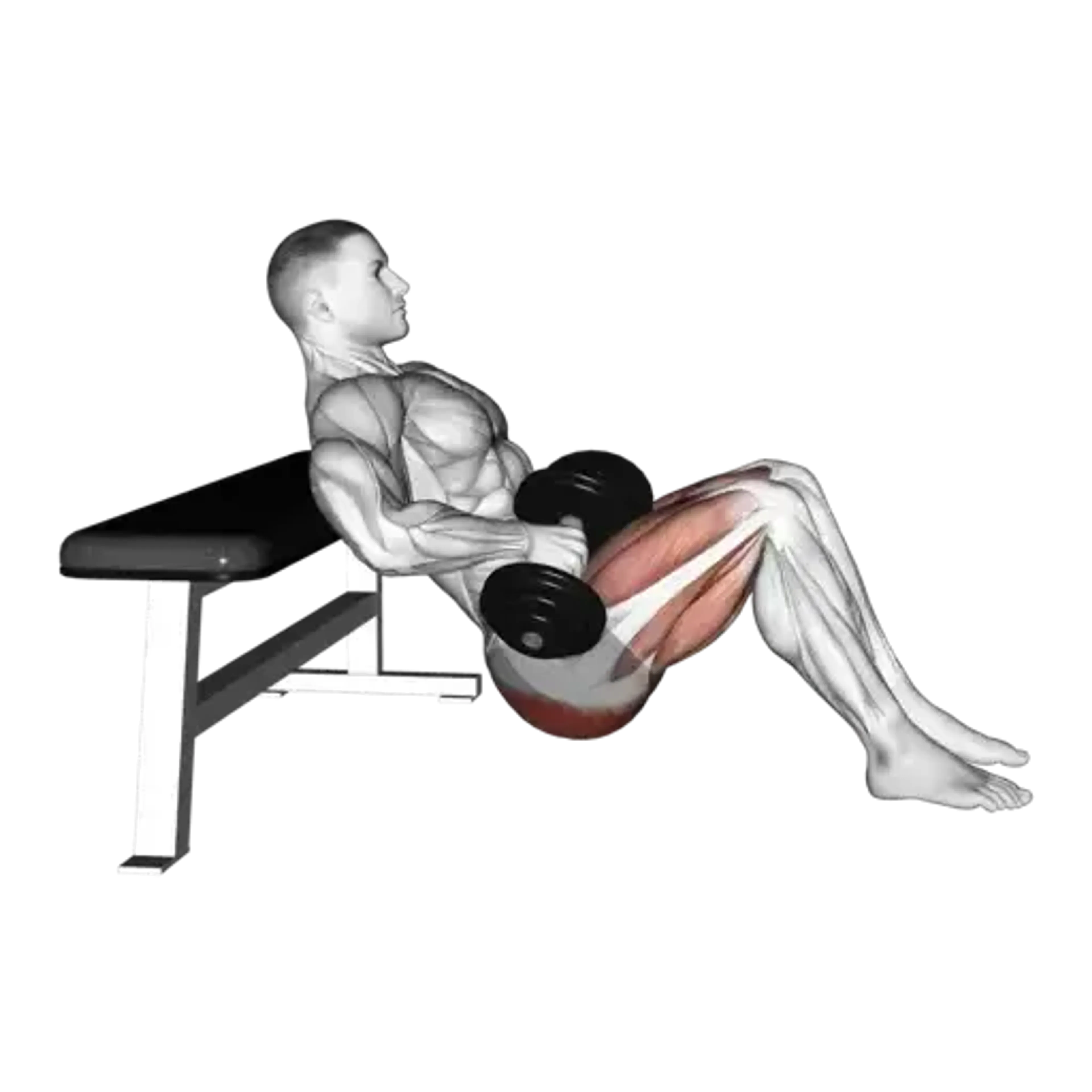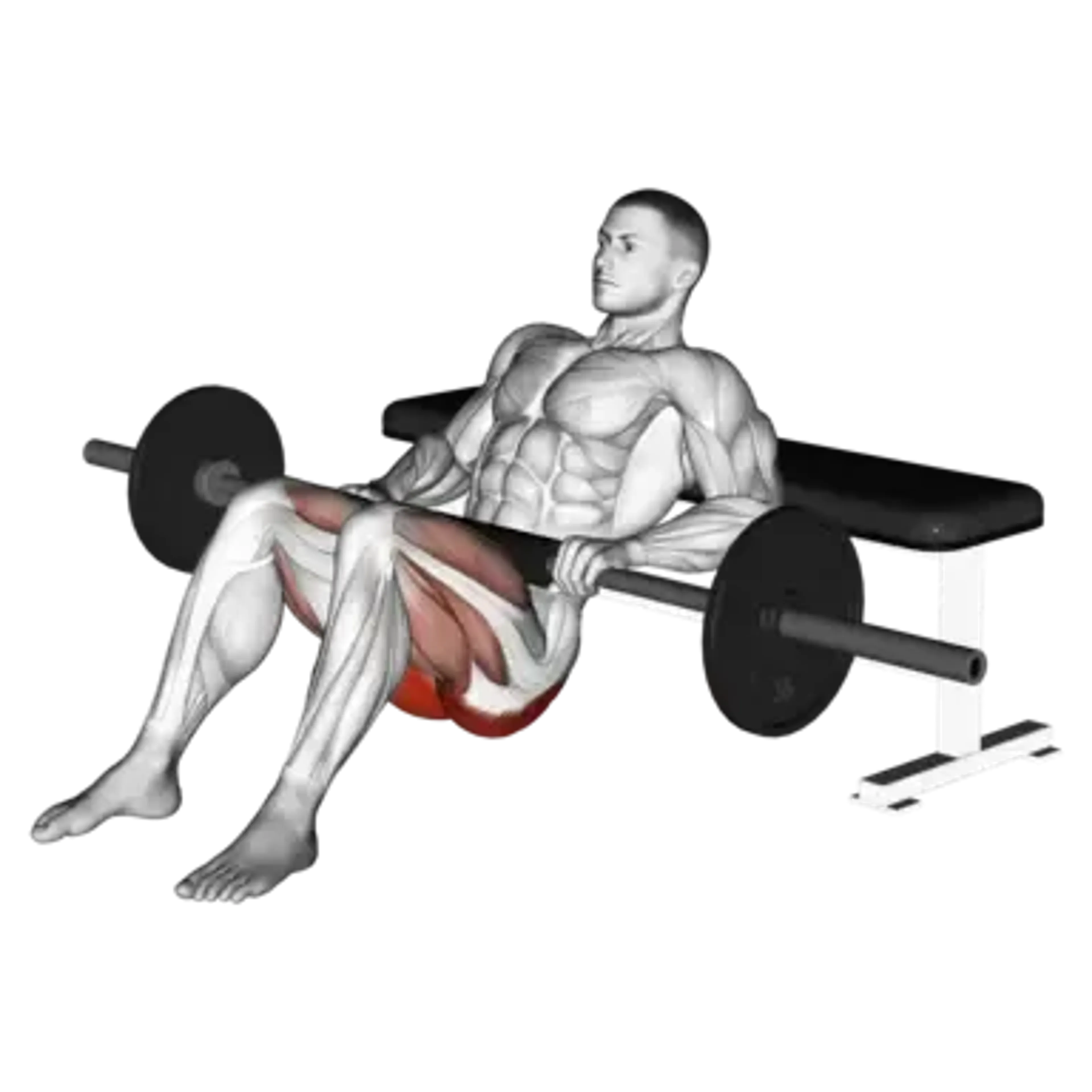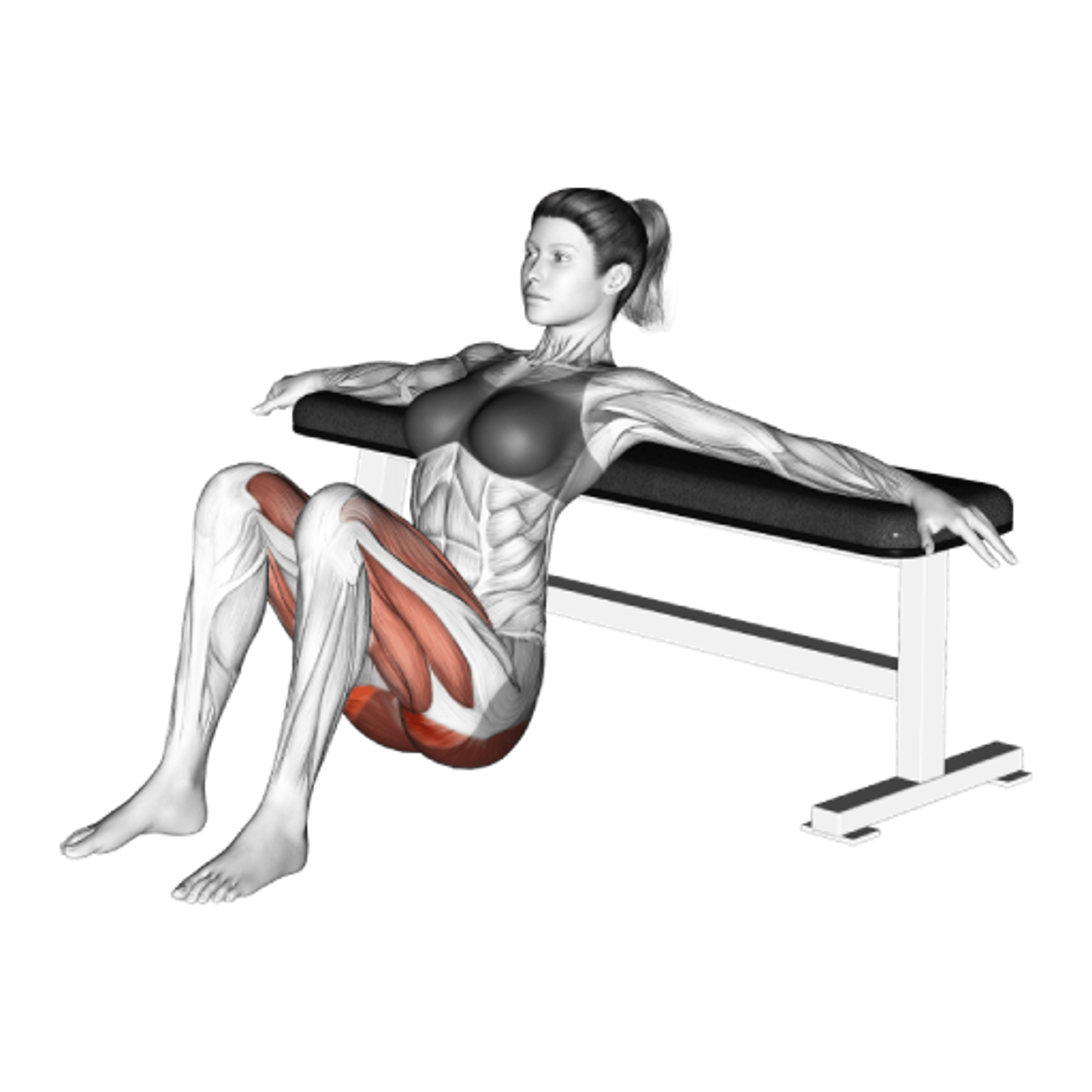Dumbbell Glute Bridge

Overview
- Primary Focus:
- Glutes.
- Equipment:
- Dumbbell.
- Difficulty:
- Intermediate.
General Information
Dumbbell Glute Bridge is a compound exercise that primarily targets the gluteus, with secondary activation of the hamstrings. It is an intermediate level movement that combines bodyweight glute bridges with the added resistance of a dumbbell placed on the hips.
This exercise is ideal for building glute strength, improving hip extension, and enhancing overall lower-body power. It's commonly used in strength training routines to improve athletic performance and correct muscular imbalances caused by prolonged sitting or quad dominance.
Unlike barbell variations, the dumbbell glute bridge offers more control and comfort, making it accessible for lifters who prefer less load on the spine or are training in limited spaces. It can be progressed by increasing weight or volume over time.
Muscles Worked
- Gluteus Maximus
- Primary
- Biceps Femoris
- High
- Gluteus Medius
- Medium
- Adductor Magnus
- Low
- Semitendinosus
- Low
Instructions
- Lie flat on your back with your knees bent and feet flat on the floor, hip-width apart.
- Hold a dumbbell horizontally across your hips using both hands.
- Engage your core and squeeze your glutes as you push through your heels to lift your hips.
- At the top of the movement, your body should form a straight line from shoulders to knees. Pause and squeeze your glutes.
- Slowly lower your hips back to the starting position without letting them rest on the floor.
- Repeat for the desired number of reps while keeping tension in your glutes throughout the set.
Build Your Personal Workout Plan
Sign up to get 5 free AI-generated workouts made for you.
Common Mistakes
Injuries
Dumbbell Glute Bridge is a low to medium risk exercise when performed with proper form and appropriate load.
The most common issue is lower back discomfort, usually due to hyperextension of the spine or poor core engagement. To avoid this, keep your spine neutral and avoid overarching at the top of the lift.
Make sure the dumbbell is positioned securely and evenly on your hips to prevent slipping or instability. If you're new to the movement, start with lighter weights to master the form before progressing.
Alternative Exercises
Frequently Asked Questions
- Q: Can I do this exercise with one leg?
Yes, single-leg variations are great for targeting each side independently and increasing difficulty.
- Q: What’s a good weight to start with?
Start with a light to moderate dumbbell (e.g., 10–25 lbs or 5-10 kg) and increase as your form improves.
- Q: Is this exercise safe for beginners?
Yes, but beginners should start with bodyweight glute bridges before adding a dumbbell.
Overview
- Primary Focus:
- Glutes.
- Equipment:
- Dumbbell.
- Difficulty:
- Intermediate.
